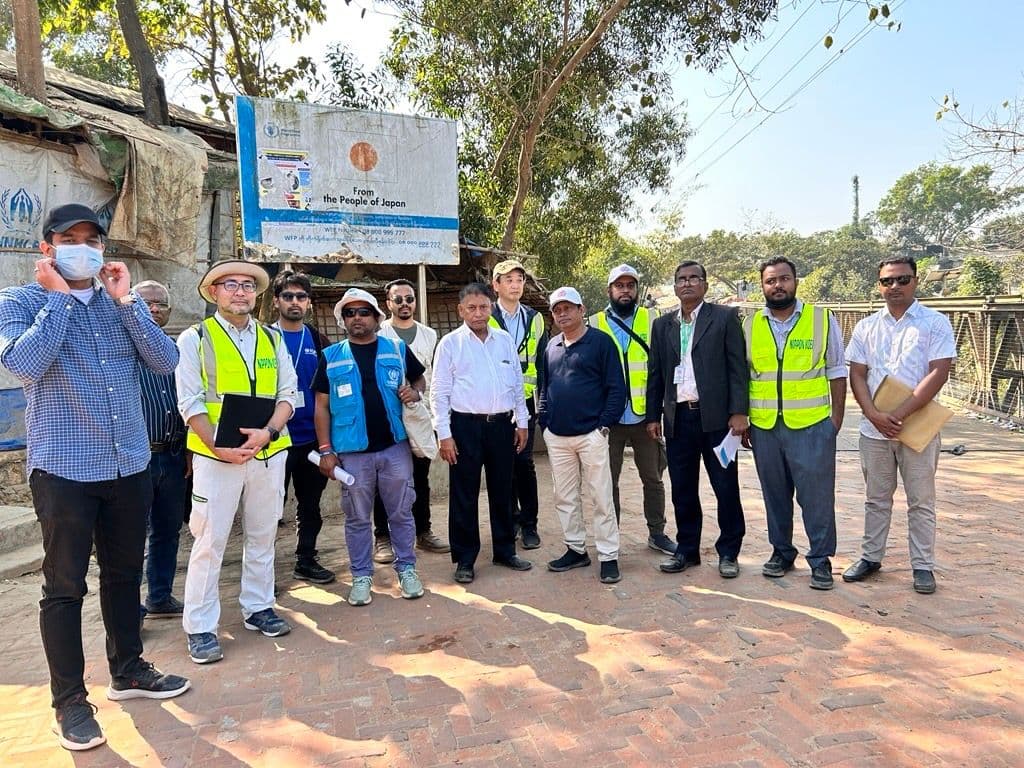Loading...

The ETD department of Nippon Koei Bangladesh Limited, in collaboration with the project team, conducted a reconnaissance survey for the ADB-funded Nature-Based Solutions (NBS) project in Cox’s Bazar and Bhasan Char. The project aims to restore a 5 km canal in the Rohingya camp at Cox’s Bazar and a 2.5 km canal in Bhasan Char, focusing on enhancing environmental sustainability and improving water management. The Local Government Engineering Department (LGED) is the executing agency responsible for overseeing the restoration works.
The reconnaissance visits were carried out to assess the current conditions of the proposed canal sites, engage with key stakeholders, and evaluate the environmental and social conditions in the project areas. The team aimed to gather technical insights that would guide the planning and implementation of the restoration works. During the first phase, the team visited the Rohingya camp in Ukhiya, Cox’s Bazar, where they held an introductory meeting with Additional RRRC personnel. This was followed by discussions with UN agencies and LGED to better understand the existing challenges and potential approaches for the restoration.
A detailed field survey was conducted along the 5 km canal to assess water flow conditions, erosion patterns, sedimentation issues, and pollution sources. This assessment was crucial for identifying the key environmental and social risks that need to be addressed in the restoration plan. In the second phase, the team moved to Bhasan Char, where they met with representatives from UNHCR, CIC, and the Bangladesh Navy to discuss operational challenges and coordination mechanisms. They also engaged with WASH partners and conducted a focus group discussion (FGD) with WASH volunteers to gain insights into community-level sanitation and hygiene practices.
A significant aspect of the visit was the on-site water quality testing, conducted at various locations along the 2.5 km target canal and nearby groundwater sources. Using a Horiba water analyzer, the team assessed contamination levels to gauge the water quality. Additionally, the team visited waste management facilities, including the municipal waste management zone, medical waste management zone, and plastic recycling plant, to analyze current waste disposal and recycling practices in the area. The reconnaissance visits provided valuable insights into the environmental and social conditions of both project sites. The findings will help in designing effective and sustainable restoration strategies aligned with ADB’s Nature-Based Solutions approach, aiming to improve water management and restore ecological balance within the Rohingya camps.